Leading up to 2022, World Bank funds were provided to Ecuadors Corporación Financiera Nacional (CFN) to self-manage the project: "Promoting Access to Finance for Productive Purposes" for micro, small and medium-sized enterprises (MSMEs). In this way small business entrepreneurs receive loans through the local private banking network from the CFN as a means of distributing credit to communities, supported by the investment funds from the World Bank.
The project has so far lent USD 99.1 million to MSMEs, disbursed for a "cleaning of the balance sheet through an asset quality review (AQR)" (i.e. Ecuadors government also began clearing off its debts to various intergovernmental agencies and social welfare programs; strengthening the social safety net). The total investment in MSME's is expected to continue to increase as banks finish disbursing all the funds from the credit line.
"In Ecuador, MSMEs were identified as an opportunity to support the country's development because they are a key source of employment and can have a trickle-down effect on a family’s economy,"
The World Bank loan to the CFN included several conditions that were key to the success of the initiative. One was to convert the CFN from a first-tier ($32K account deposit insured) bank to a second-tier ($15K account deposit insured) bank. This expanded available loans and depositor insurance coverage to more MSMEs (small account balance holders), encouraging the small business sector. As a result the amount of credit disbursed was tripled, reaching more residents of small towns and remote rural areas.
This project in partnership with the Ecuadorean government has also encouraged the financial system, including the CFN and private banks, to incorporate "environmental and social monitoring* criteria" into their programs. This helps ensure that the MSME financed projects use sustainable practices and technology that meet climate change adaptation and mitigation criteria. It is a win-win-win relationship where the entrepreneur wins, the bank that makes the loan wins and, finally, the country wins through job creation, tax revenue and the generation of foreign capital.
*Most of the MSMEs that have accessed credit are managed or owned by women, for which reason the project is also contributing to closing the gender gap.
Additional projects focus on increasing access to better quality services and on improving infrastructure in: transportation**, water, sanitation, education and agriculture. They also aim to improve financial inclusion: economically empower native communities and indigenous nations, and improve the effectiveness of social protection and public health systems (i.e. recovery of the IESS system and national stock of medicines, vaccines, employment of medical personnel and support, repaying government debt to private health providers to whom the IESS refers patients for specialized care not covered by the national system, the Cancer Institute, etc.). The World Bank also finances a broad-based technical assistance program in: education, social and environmental systems (i.e. decarbonization of the transport sector), the sustainable development of oceans, health, migration, financial inclusion and infrastructure, poverty, competitiveness, and efficient green transportation, among other areas.
**The Resilient Reconstruction Emergency project that will be implemented by the Ministry of Transport and Public Works (MTOP). This financing supports government efforts to recover connectivity and improve infrastructure and road safety in areas affected by natural hazards, and invest in resources to respond to future hazards. This in response to the impact of the March 2023 earthquake and the heavy rains of the 2022-2023 winter season.
The operation will also help strengthen MTOP response capacity by financing machinery and equipment and building management and response capacities. All interventions will include activities to improve road safety and contribute to closing the gender gap in the sector.
Source: WorldBank (dot org)
 Food in Ecuador
Food in Ecuador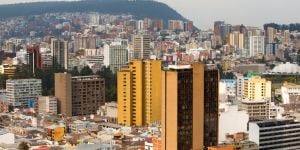 Opening a bank account in Ecuador
Opening a bank account in Ecuador Healthcare in Ecuador
Healthcare in Ecuador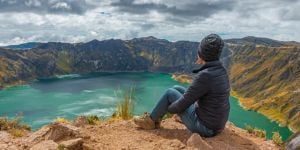 The Working Holiday Visa for Ecuador
The Working Holiday Visa for Ecuador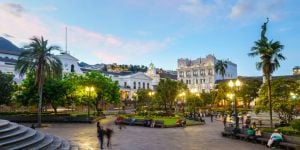 Work in Ecuador
Work in Ecuador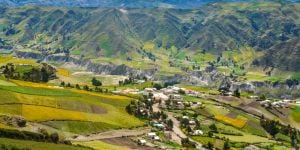 Family and children in Ecuador
Family and children in Ecuador Leisure activities in Ecuador
Leisure activities in Ecuador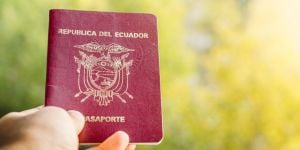 Permanent Residency in Ecuador
Permanent Residency in Ecuador


